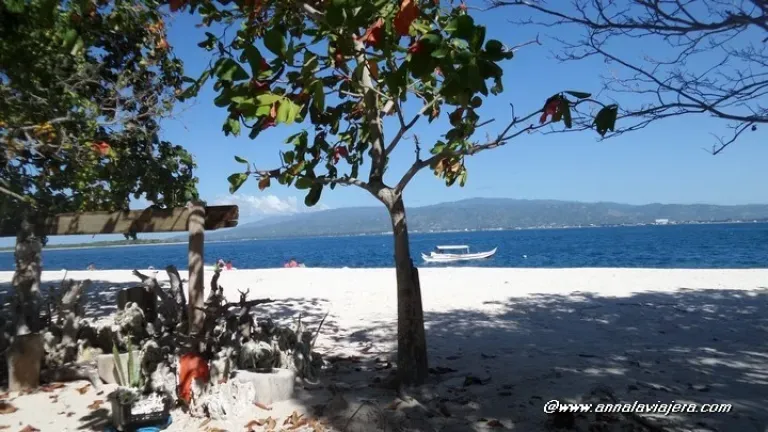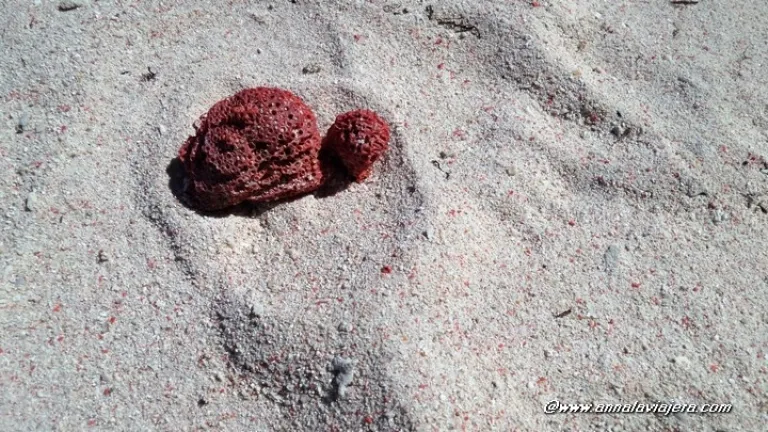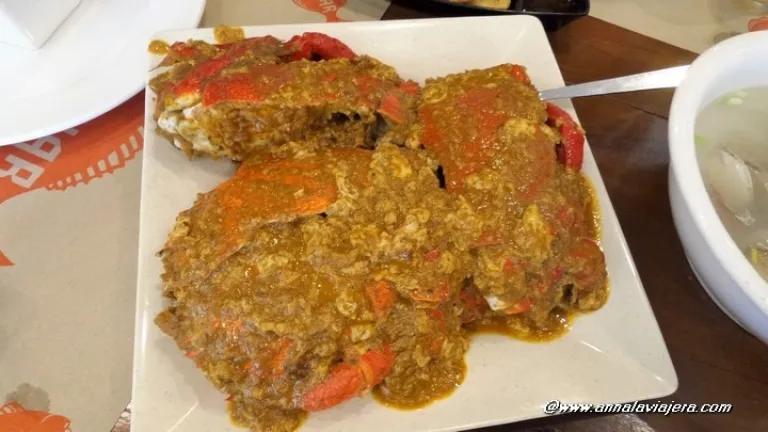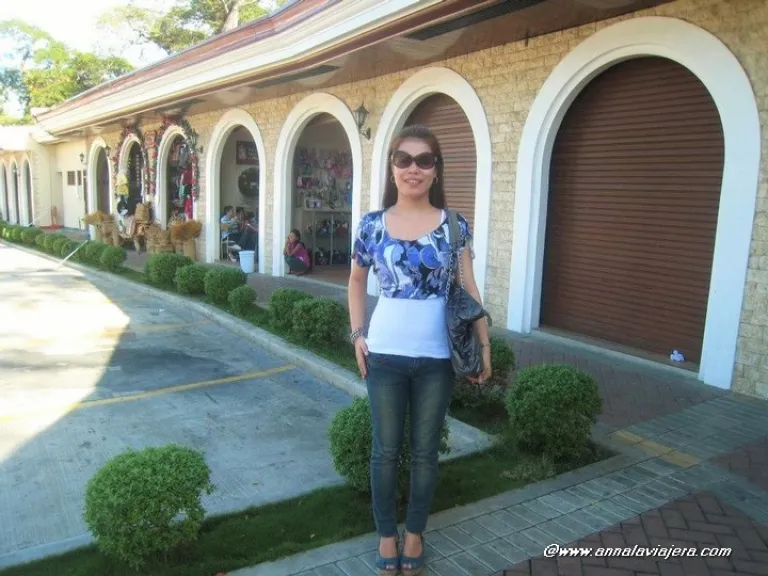Our favourite places to stay on this sleepy Cebu island.
Why Zamboanga City Should Be on Top of Your Philippine Travel List

Contributed by Anna La Viajera
With its cherry-coloured beach like the Bahamas’, a cuisine as diverse as Malaysian’s and Indonesian’s, the undying devotion to our lady of the Pillar inherited from Spain, and a language that is almost Mexican — Zamboanga City is truly a melting pot of cultures. It is a diversified city where different religions, particularly Muslims and Christians, coexist, various ethnic tribes live harmoniously, and people have adapted cuisines from a number of Asian countries.
Zamboanga may not be on a traveller’s top destinations list for various factors, but the cultural makeup of this ciudad preciosa make it one of the most unique and diversified cities of the Philippines. It truly is worthy of your visit, and let me tell you why.
Zamboanga has the most pristine pink sand beach, the Great
 A touch of pink
A touch of pink
Beach lovers, who have gone tired of the white sand beaches of the Visayan Islands or the mocha-coloured sands in Luzon, will love the cherry-coloured sands of the Great . It is accessible by pump boat that can accommodate 10-12 persons for the price of ₱1,000 roundtrip.

The berthing point is at the famous Paseo del Mar, a well-known facade by the sea. Boats start leaving as early as 6:00 AM. There are no tiendesitas or food stalls in the beach except for some seafood that soldiers guarding the area can grill for the visitors. Prices may vary from ₱150-300 per order, depending upon the size and type of the fish. Rice is not included though. Nevertheless, for any changes in schedule due to holidays or special events, it is advisable to reserve the trip at the city tourism office seated alongside the front facade of the said beach park.
Also read: 15 Secret Beaches in the Philippines You Probably Didn’t Know About
For queries about places to visit in Zamboanga, please contact:
DEPARTMENT OF TOURISM IX
Ground Floor, SBC Building
Gen. Alvarez St. cor. Claveria St., Zone IV Zamboanga City 7000
Tel.: (062) 955 2477
dotr9@yahoo.com
Its local dishes are truly exotic
 , Zambo’s signature dish
, Zambo’s signature dish
For foodies out there, try Zamboanga‘s famous , a local name for red frog crabs best eaten with the famous Alavar sauce. Alavar’s restaurant has earned the reputation of serving the best in town located at Tetuan, a jeep away from the city centre.
Other option is to pass along the Pasonanca road where a myriad of good restaurants are lined up. You may also take a stroll at Paseo del mar at sunset and enjoy delectable seafood meals with live bands from its various restaurants such a Mano-Mano and Kape Zambo, among others. After a great dinner, try the Knicker Bocker, a healthy dessert made famous by Palmeras’ restaurant.
To know some more unique Zamboangueno cuisines, check out my blog post.
Also read: 12 Notable Sites in the Philippines Every History Buff Must Visit
You can simply do your own historical walking tour

With 546 square miles land area, walking around downtown Zamboanga to catch sight of its famous attractions is a cherry pie for historic sightseers. The best way to start exploring Zamboanga is at the heart of the city — Plaza Pershing, a historical landmark named after American general John “Blackjack” Pershing. To its south is the mall centre from Southway mall to Mind Pro. Walk further until you get a glimpse of the whitewashed, candle-like design of the Zamboanga Cathedral or formally called as the Metropolitan cathedral of Immaculate Conception, where the Archdiocese seat is found. Close to the cathedral is the Ateneo De Zamboanga University.
 City Hall
City Hall
Next to Plaza Pershing is the Universidad de Zamboanga. And facing it is the small Rizal park which is in front of the iconic , a Hispanic building constructed in 1905.
Continue walking along the N.S. Valderosa Street (Calle Espana), the best-preserved street which is aligned with palm trees and surrounded by Spanish and American fashioned architectural structures. Keep going until you reach Paseo del Mar, a regular place for family and friends.


Adjacent to Paseo is the Fort Pilar, built by the Spaniards in 1635 as the Real Fuerza de San Jose to ward off sea attacks from the moro warriors. On its left is a plaza aligned with souvenir shops. Alongside is the Sta. , one of the biggest mosques in Zamboanga. Sometimes, the chants of the Muslim prayers from the mosque and the singing of Catholic mass songs are overheard simultaneously at this spot during the day.
You’ll have an amazing excursion to Muslim villages
For those curious about Islam, experience a different side of Zamboanga with an excursion to the Muslim villages. 30% of the city’s population are Muslims, 60% Catholic, and the 10% are composed of Buddhists, Protestants and other Christians.
Muslims have several tribes and one of them is the Yakan, who are recognised for their unique weaving skills. Ride a jeep going to the Yakan Village and get wind of the intricacy and rarity of the weaving designs that only these Yakans can fabricate. The end products of this mastery are bags, shawls, handbags, clothes, and many more. Their weaving style and techniques are comparable to the rebozos of Mexicans from Tenancingo, State of Mexico. It is believed that this art was brought by this Muslim tribe to Mexico during the galleon trade.

Walking distance from this village is a ton of houses built along the shore inhabited by another Muslim tribe called the Badjaos, the sea-gypsies. For a hunt of a beautiful Mosque, head 19 kms east from the city centre and marvel at the historical village of Taluksangay, where the oldest mosque in western Mindanao is constructed. At the end of the trip, never fail to pass by the Canelar barter trade centre to grab souvenirs which are sold cheaper than in any other shops.
The cool and green environment will mesmerise you

Nature lovers can take a leisurely stroll at Pasonanca Park, dubbed as the little Baguio of Zamboanga due to its cool climate. This greenly park is the oldest and biggest park in the region, built in 1912 when Gen. John Pershing was then the governor of the Moro province. This green site boasts campsites, an amphitheater and convention centre, and some picnic areas. It also houses the known which was constructed originally to be the “Youth Citizenship Training Center” in April 1960. One of the added facilities in the said park is the La Jardin de Maria Clara Lobregat and Butterfly Park.
So when is the BEST time to visit?
The best time to visit Zamboanga City is throughout the month of October where the Hermosa Festival is celebrated, one of the oldest festivals in the country held in honour of our Nuestra Senora del Pilar (miraculous Our lady of the Pilar), the patroness of the city as well as of Zaragoza, Spain.
The feast of Our lady of the Pilar falls every October 12. Numerous activities are held during this month-long festival including the Regatta De Zamboanga, where the famous colourful Vintas of Zamboanga are racing to bag the title, street dance competition, Miss Zamboanga and many other special contests.
Aside from this cheeriest month, February 26 is also special for Zamboanguenos as it marks the Dia de Zamboanga (Day of Zamboanga), the day when the city was declared as a chartered city under the Commonwealth government in 1937.
Also read: The Ultimate Filipino Traveller’s Bucket List: 101 Challenges You Need to Complete
Once called as the City of Flowers, recently as the Sardines Capital of the Philippines or consistently as the Asia’s Latin City, Zamboanga City may have changing titles but its true enticing beauty will never change despite the plight and predicament it had experienced. With the government efforts and Zamboanguenos’ support, Zamboanga City is now fighting back to maintain the peace and progress it deserves.
Published at
About Author
Anna Jane Posequit
Subscribe our Newsletter
Get our weekly tips and travel news!
Recommended Articles
10 Bantayan Island Resorts, Hotels, and Rentals for Your Tropical Escape 10 Best Mountain Cafes in the Philippines for Your Peak Coffee Experience Coffee date on the mountains, anyone?
10 Commandments for Responsible Travel Flexing Spread the good word!
10 Fairytale Castles In Europe Filipinos Need To See! Permission to feel like royalty even for a day?!
10 Family Outing Ideas in Metro Manila Under ₱500 Looking for a weekend bonding with the family under ₱500? Head to these places, pronto!
Latest Articles
Myanmar Earthquake: Strong Tremors Cause Building Collapse in Bangkok A powerful earthquake in Myanmar shakes Southeast Asia!
Tuasan Falls: A Refreshing Escape in Camiguin Easy-to-reach waterfall with crystal-clear waters in Camiguin
Best Places to Celebrate Songkran Festival 2025 in Thailand Let’s get soaked!
4 Best Tanay River and Hiking Trails: Ultimate Outdoor Adventure Escape the city and explore Tanay’s stunning rivers!
Meat-Free Filipino Dishes to Try This Holy Week Discover must-try Filipino dishes perfect for a meat-free Holy Week.

